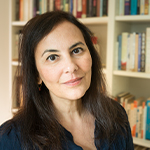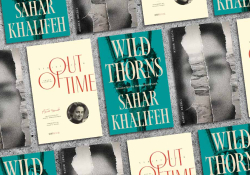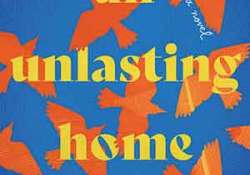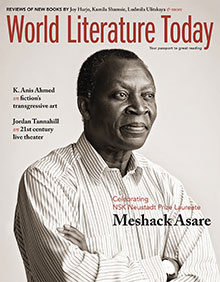Arab Literature: Politics and Nothing But?
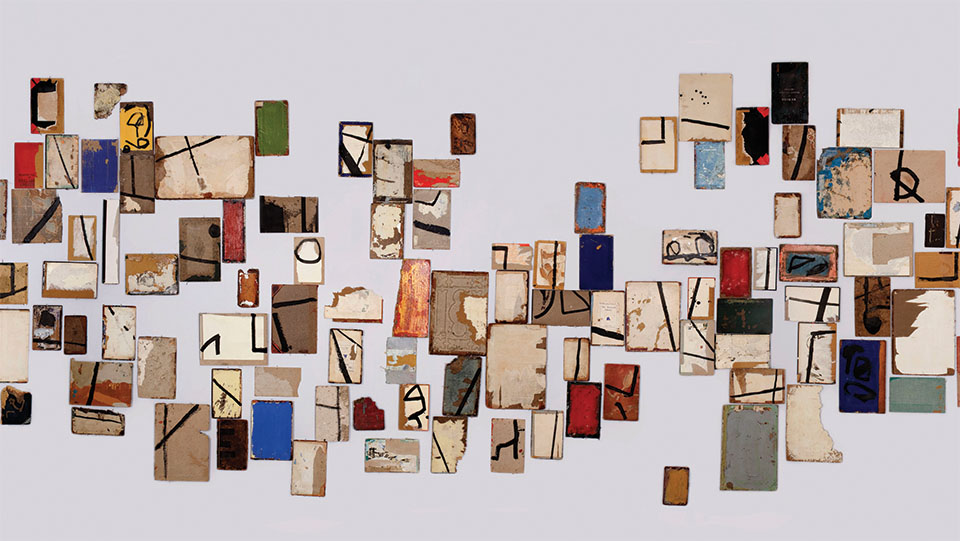
In the West, Arab literature is often considered to be political and nothing but. This misperception is itself politically charged and reinforces dangerous stereotypes about the Arab world. The category of “Arab literature” might be part of the problem.
After a recent book reading in a European city, an American friend in attendance said to me afterward, “You know, it’s too bad you had to field so many questions about politics in the Middle East and so few about your fiction.” This event was not unusual. It followed a similar pattern to others I’ve done in Western cities. Post-reading queries tend to focus on women’s lack of rights in the Arab region, religious fundamentalism, living under dictatorships, censorship and freedom of expression, and the implications of various regional wars rather than on questions about literary aesthetics. I suspect this has something to do with the fact that I am an Arab writer.
There is, I think, a general expectation in the West that Arab writers are political animals and that all Arab literature is thus, by default, political. These assumptions likely stem from the even more general perception of the Arab world as an endless tangle of political divisions and shifting political loyalties that follow an inscrutable logic. In short, the Arab world is viewed as a place of politics and nothing but. It makes sense, therefore, that Western readers of literature by Arab writers would focus on the political aspects of their work, would turn to such books as a way to decipher the seemingly indecipherable, and, if the chance should arise, would ask the writers directly about their take on what, in a completely different register, Zorba the Greek describes as “the full catastrophe.”
There is, I think, a general expectation in the West that Arab writers are political animals and that all Arab literature is thus, by default, political.
I understand this earnest desire of Western readers of Arab literature to try to comprehend the unknown, fear-inducing, politically overwhelming Middle East. I respect their questions and normally enjoy the ensuing discussion. Still, I’m always left feeling that this inevitable exchange between me and keen audience members elides something important, that it might be symptomatic of what Salman Rushdie has described as a “ghetto mentality.”
Generalizations tend to be flattening, leaving out the nuances and incongruous specificities that enrich understanding. Generalizations often become dichotomizing: if group A (Arab writers) is defined by one characteristic alone (political), this is usually in contrast with group B (Western writers), defined by its opposite (nonpolitical or more than merely political). Judgment is only a short step away from such essentializing oppositions.
In his landmark essay “‘Commonwealth Literature’ Does Not Exist,” Salman Rushdie argues against the usefulness of the generalizing category of “Commonwealth literature.” To Rushdie, lumping together far-flung writers because they happen to come from countries once colonized by Great Britain is both patronizing and detrimental. It is patronizing because it excludes writers like Mulk Raj Anand, Anita Desai, Chinua Achebe, even Rushdie himself from being considered within the parameters of the more exclusive (and decidedly white) category of English literature. It is detrimental because it obscures the fact that other more interesting and important affiliations exist between writers than whether or not they belong to the Commonwealth of Nations. Without the obfuscating lens of “Commonwealth literature,” Rushdie states, “we could discuss literature in terms of its real groupings, which may well be national, which may well be linguistic, but which may also be international, and based on imaginative affinities.” Within the academy, Rushdie’s wish, expressed in 1983, has, to some extent, materialized. “Commonwealth literature” does not exist, not in the way it did in the early 1980s. However, outside the academy, I would say that the “ghetto mentality” Rushdie believed was produced by the “phantom category” of “Commonwealth literature” continues to exist as an effect of other phantom categories, one of which is the category of “Arab literature.”
To describe “Arab literature” as a phantom category is not to suggest that Arab literature does not exist or that it should not exist. Not by any means. It is to suggest, instead, that as a generalizing category, “Arab literature” might have some patronizing and detrimental effects. It becomes patronizing when all Arab literature—whether written in Arabic or in other languages, whether its writers live in the Middle East or elsewhere, whether its content and form relate to the Middle East or not—is assumed to be a uniform block separate and distinct from other literary groupings to which it could otherwise belong (for example, English, American, or French literature, postmodern literature, comparative literature, magical realist fiction, or detective fiction, among others). It becomes detrimental when all Arab literature is assumed to be political and not much more than that. It becomes a categorization that prevents readers from seeing what else might be going on in addition to politics.
Let me say, first, that like Fredric Jameson, Raymond Williams, Terry Eagleton, and, before them, Theodor Adorno, Walter Benjamin, and Georg Lukács, I think all literary texts are political, even if they are not overtly about politics. They express and embody the political, economic, and social conditions of their production. Writers of literature are shaped by their respective contexts, and what they write inevitably expresses these contexts and reshapes them in turn. E. L. James’s Fifty Shades of Grey (2012) expresses and embodies the political no less than does Sinan Antoon’s Wahdaha Shajarat al-Rumman (2013; Eng. The Corpse Washer, 2013). The common impulse, however, will be to see the latter in political terms and not the former. This is itself a political judgment based on the kinds of generalizations about the Arab world, Arab writers, and Arab literature mentioned above. It is a distorting generalization that prevents us from considering that, perhaps, in our globalized, connected world, the political conditions that produced Fifty Shades of Grey (and turned it into a best-seller) were the same political conditions that legitimized the US occupation of Iraq, the context of Antoon’s novel. Such conditions would include systemic asymmetries of power, the triumph of wealth, the domination of the weak and poor—conditions many struggle valiantly against even as consumer culture convinces the majority not to bother. If we accept this argument that all literature is political, then it becomes more difficult to ghettoize one category of literature away from other literatures on the basis of geography, ethnicity, race, language, or whatever else. What might this understanding allow us to see differently about Arab literature?
Contemporary Arab literature is political because, as mentioned, all literature is. But beyond that, it is political because, in recent decades, local and global political machinations have reduced the raw materials of existence in the region to rubble. Arab writers, each in their way, create what they will out of this, and the residue of politics and its consequences will inhere in what they produce. But contemporary Arab literature, like literature generally, can be a humanizing force against the often brutal and alienating conditions of its own production. It can provide a counter to, rather than confirmation of, sweeping generalizations and orientalizing stereotypes. It can create a space for readers to dwell in uncertainty and ambiguity, unusual in a world where political and military decisions are made and executed with no equivocation (to the horror and dismay of those affected). Literature can produce empathy and tolerance. It can expose the intolerable and at the same time emphasize the excruciating beauty that continues to exist despite it—as is certainly the case in Antoon’s masterful and haunting novel.
If readers in the West prevent Arab literature from escaping the judgment of politics, they prevent themselves from seeing the Arab world as anything other than a distant and baffling topic on the evening news. This, in turn, prevents Arab literature from doing the remarkable things that it, like literature in general, can do. Edward Said put it this way: “A literary text speaks more or less directly of a living reality. Its force is not that it is Arab, or French, or English; its force is in the power and vitality of the words,” which give the lie to assumptions, judgments, stereotypes, in short, to generalizations about distant places and different people. Today—in the midst of ISIS, the Palestine-Israel conflict, the ongoing tragedies in Iraq, Syria, Libya, and Yemen, the Saudi-Iranian standoff—this capacity of Arab literature is more urgent and indispensable than ever. We ignore it at our own risk.
Kuwait University
FOR FURTHER READING
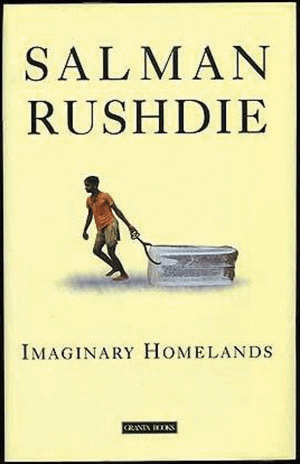
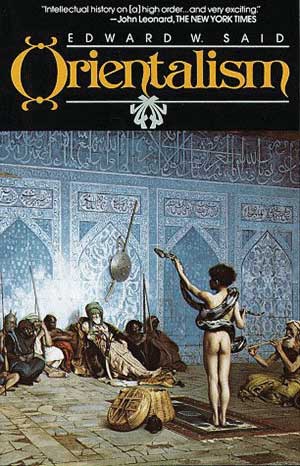
Salman Rushdie, Imaginary Homelands: Essays and Criticism, 1981–91
Edward W. Said, Orientalism
